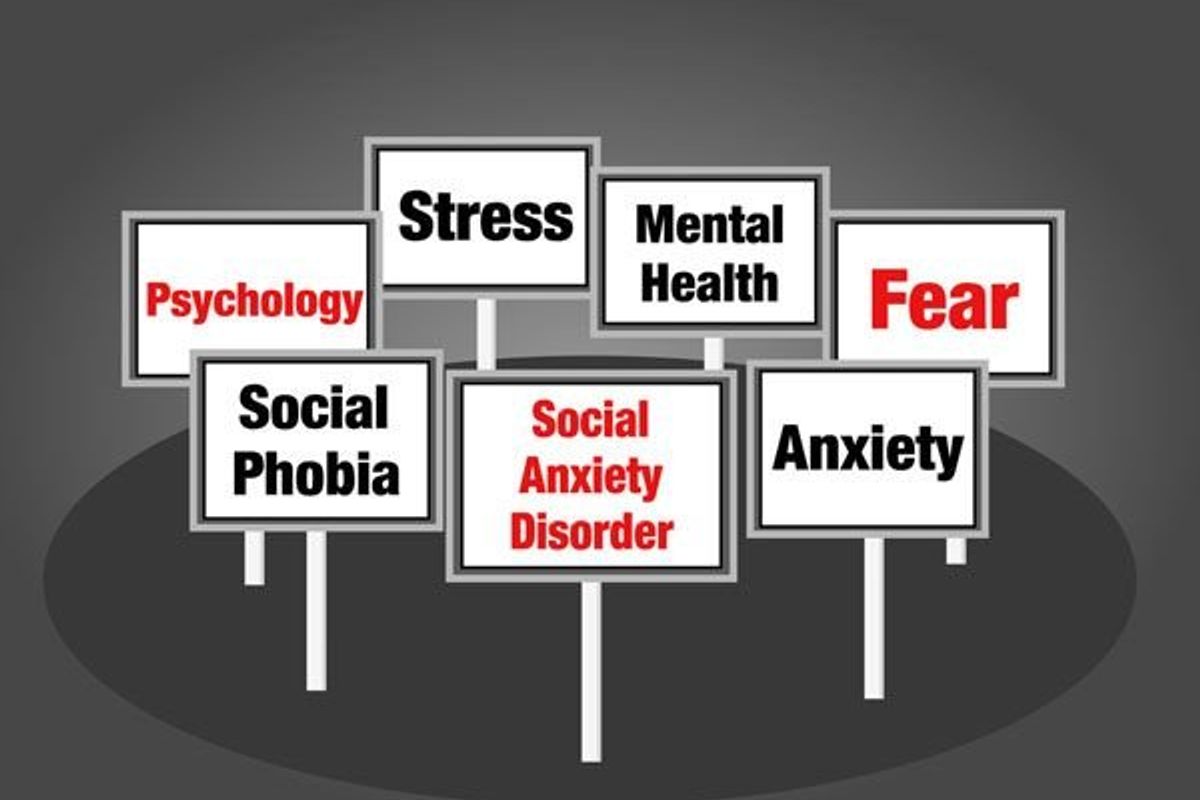

Learn about our editorial policies
Medically Reviewed
FRIDAY, Sept. 26, 2014 (HealthDay News) -- Antidepressants are commonly used to treat social phobia, but a new report argues that "talk therapy" is the better first option.
In a review of 101 clinical trials, researchers found that "cognitive behavioral therapy" often helped people with social phobia -- a type of anxiety disorder where people have a deep fear of being judged by others or embarrassed in public.
The more common approach to tackling social anxiety -- antidepressants known as selective serotonin reuptake inhibitors (SSRIs) -- also helped, the review found.
But cognitive behavioral therapy showed even bigger "effect sizes" across studies that tested it, the researchers report in the Sept. 26 online issue of The Lancet Psychiatry.
SSRIs include widely prescribed medications such as Paxil, Prozac and Zoloft. While the drugs can ease symptoms of social anxiety, they can also have side effects, including sleep problems and sexual dysfunction, said Evan Mayo-Wilson, a researcher at Johns Hopkins University in Baltimore, who led the new study.
"The other issue," Mayo-Wilson said, "is that drugs often stop working. With [cognitive behavioral therapy], you're teaching people skills that they take with them after the therapy ends."
An estimated 15 million U.S. adults have social anxiety disorder, according to the U.S. National Institutes of Health. The condition is more than simple "shyness," Mayo-Wilson said. It's a fear of social situations that's so strong it interferes with people's education, or ability to work or have relationships.
With cognitive behavioral therapy, the goal is to help people with social phobia change their thought patterns and learn better responses to situations that usually make them fearful. According to Mayo-Wilson, it gets at the underlying issues, whereas medication targets symptoms.
Given that, he said his team thinks behavioral therapy should be offered as the first treatment option for social phobia.
Dr. Franklin Schneier, a research psychiatrist at the New York State Psychiatric Institute in New York City, said he "wouldn't disagree" with trying talk therapy first.
"But it's also not black and white," said Schneier, who was not involved in the study.
He pointed out that some people will prefer trying an SSRI, and may fare well. "I do think it's important for people to know there are different options available," Schneier said.
It's also hard to know whether behavioral therapy is, in fact, better than antidepressants based on the trials in this review, according to Schneier. A few studies directly compared cognitive behavioral therapy and medication, but most did not. And head-to-head comparisons are the best way to tell whether one treatment beats another, Schneier said.
Plus, he added, the effectiveness of behavioral therapy depends, in part, on finding a therapist who is knowledgeable about the best ways to treat social anxiety.
Mayo-Wilson agreed that depending on where you live, finding a therapist can be difficult. "Getting insurance coverage can be a problem, too," he said.
One promising result in this review, Mayo-Wilson said, was that "supported self-help" showed benefits in a few studies. With that type of therapy, people use self-help techniques -- learned from a manual or online -- and get feedback from a therapist, over the phone, by email or in a couple of group sessions.
Mayo-Wilson noted that in Great Britain, the national health system already recommends cognitive behavioral therapy as the "treatment of choice" for social anxiety. If people prefer medication, the advice is to use an SSRI.
Mayo-Wilson said he'd like to see U.S. treatment guidelines go in the same direction. He noted that cognitive behavioral therapy is given over a defined period of time -- typically a few months -- so the immediate costs can seem large, but would probably be lower than the cost of drugs over time.
SOURCES: Evan Mayo-Wilson, D.Phil., M.Sc., research scientist, Johns Hopkins Bloomberg School of Public Health, Baltimore; Franklin Schneier, M.D., research psychiatrist, New York State Psychiatric Institute/Columbia University Medical Center, New York City; Sept. 26, 2014, <i>The Lancet Psychiatry</i>, online
Copyright © 2014 HealthDay. All rights reserved.
You might be interested in





